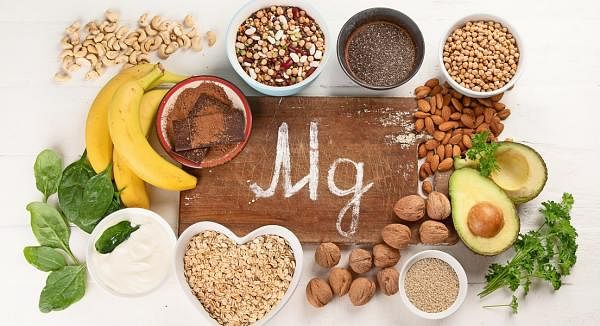Does Stress Cause Weight Gain?
Why you can trust Nutri Advanced Every article on our site is researched thoroughly by our team of highly qualified nutritionists. Find out more about our editorial process.
The link between excessive food intake and weight gain is an easy one to get your head round. The link between stress and weight gain however is not quite so straightforward. This relationship may well be a bit more complex but it’s no less significant - the impact of stress on weight gain is a silent, growing epidemic.
21st Century Stress Response
The stress system works really well when faced with an immediate threat – i.e. when we actually need to ‘fight or take flight’. Running from a sabre-toothed tiger is the much-used example – not the most common problem in 2015, but you get the point! Under acute stress, hormones are released to prepare the body to take action. When the stress has passed, cortisol helps to replenish the body and get things back to normal.
Unfortunately, many 21st century stresses don’t require immediate physical action (less sabre-toothed tiger, more looming work deadline!) yet the stress system still responds as if this is the case. Heart rate and blood pressure increase, energy is diverted away from digestion and blood sugar surges, ready to provide immediate fuel for when the muscles need to spring into action. And this is how the stress response can start to work against us – the body is ready to take action but few people get up and start racing around the office when stress strikes, instead the body must work hard to regain balance.
The negative health effects of stress can be wide-ranging and far-reaching; especially as far as weight gain is concerned:
• People Often Eat More to ‘Deal with Stress’ – A typical response to stress is to reach for something to eat or drink – eating can quickly become a habit for dealing with stress; adding extra calories and contributing to weight gain.
• Stress-Sugar-Fat – Our muscles need sugar during the ‘fight or flight’ response – one of the reasons people crave carbohydrate foods during stress. The body also responds to stress by pumping more sugar into the blood. The increased intake of sugary foods and surge in blood sugar lead to a corresponding spike in insulin, which creates the perfect environment to store fat.
What happens When Stress Becomes Chronic?
Unfortunately, if stress becomes chronic (on a regular or repeated basis), as is often the case for 21st century stresses, the stress hormone cortisol can remain elevated, which can lead to even more problems.
• Increase in Appetite – Acute stress is often accompanied by a temporary loss of appetite; however when stress becomes chronic, cortisol levels remain elevated and can cause an increase in appetite. The neuro-endocrine system doesn’t know you didn’t ‘fight or take flight’ so still responds to stress with the hormonal signal to replenish nutritional stores. One of the most notable effects of chronically elevated cortisol is an increase in appetite, and cravings for certain foods; particularly sweet, sugary foods and salty snacks.
• Cortisol & Fat Storage – Cortisol functions as a potent fat-storage signal within fat cells, especially abdominal fat cells hence why cortisol exposure is associated with higher levels of fat in the abdominal region compared to fat levels in other parts of the body.
• Lack of Sleep Cycle – Sleep problems are a common side effect of chronic stress; and this can quickly turn into a vicious cycle. When we don’t get enough rest, cortisol levels rise, leading to an increase in appetite and feeling less satisfied with the food we do eat.
• Vicious Stress Cycle – Stimulants such as caffeine, cigarettes, sugary drinks, chocolate and alcohol are commonly leaned on in times of stress and can cause cortisol levels to rise, blood sugar imbalance and an increase in appetite.
Reduce Stress to Support Weight Loss
Dealing with chronic stress requires a multi-faceted approach, which includes both dietary and lifestyle changes. Looking at ways to reduce stress is the first port of call. Exercise, relaxation, eating regularly and avoiding stimulants are all part of a stress-improvement strategy.
The stress response is very draining on the body’s nutrient reserves and can quickly deplete important nutrients such as B complex, vitamin C, calcium, zinc and magnesium. These nutrients are needed to balance the effects of stress hormones like cortisol, and play a role in helping us to burn fat. Providing the body with extra supplies of these additional key nutrients during times of stress can help to support a more balanced stress response, balance blood sugar and can also help with fat burning and weight loss.
Our balanced body and mind range is designed to help steer you back towards your personal state of equilibrium.
This website and its content is copyright of Nutri Advanced ©. All rights reserved. See our terms & conditions for more detail.
Nutri Advanced has a thorough research process and for any references included, each source is scrutinised beforehand. We aim to use the highest value source where possible, referencing peer-reviewed journals and official guidelines in the first instance before alternatives. You can learn more about how we ensure our content is accurate at time of publication on our editorial policy.
Most Popular Articles
-
7 Surprising Ways To Support Your Magnesium
If you are displaying signs of a magnesium deficiency, here are 7 ways to boost your magnesium levels that are easy to incorporate into your daily life. -
5 Best Vitamin C Supplements Picked By Our Experts
Learn more about the different types of vitamin C, the different benefits you get from different types, and what you get for spending more on a good supplement. -
Top 5 Vitamins For Energy And Tiredness Picked By Our Experts
The 5 best and most important vitamins for energy & tiredness including B vitamin food sources & best supplement forms for energy. -
Benefits of Myo-Inositol for Polycystic Ovary Syndrome (PCOS)
In this research review article, we take a closer look at a lesser-known natural compound called myo-inositol that has been found to have significant potential to improve many of the prevalent features of PCOS. -
Top 10 Reasons to Give Your Kids Omega-3
Read the top 10 reasons that kids should have plenty of Omega-3- an essential fatty acid- including for depression, brain function, sleep & reading/maths skills.











